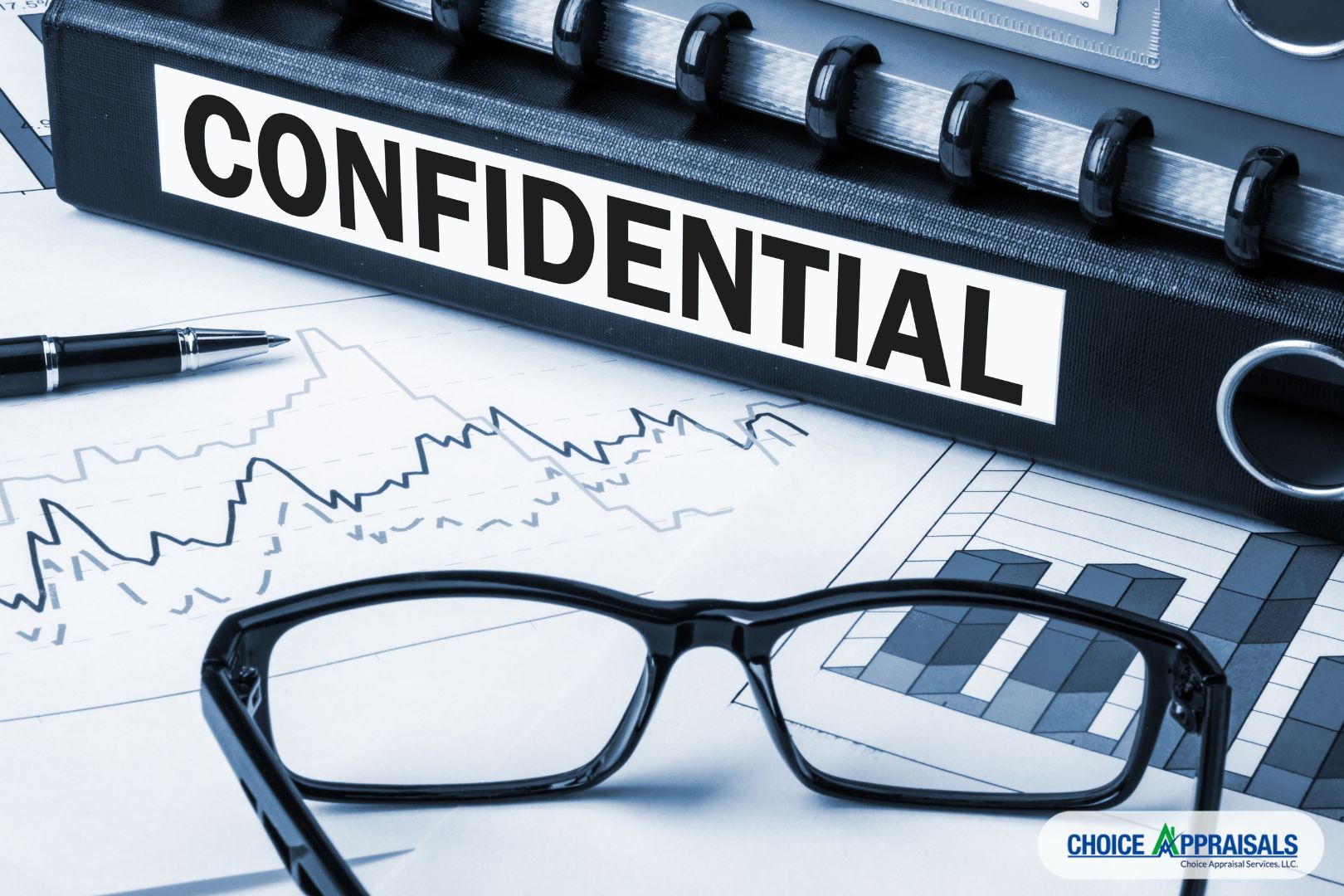Have you ever wondered how your privacy is protected during a real estate appraisal? Confidentiality isn’t just a courtesy—it’s a critical necessity in the real estate industry. Imagine the peace of mind knowing every detail about your property is handled with the utmost care and discretion. Confidentiality ensures that sensitive information remains secure, fostering a trustworthy relationship between appraisers and clients.
This article will explore why confidentiality is paramount, the standards appraisers adhere to, and how safeguarding your personal data protects your interests. Understanding these aspects will help you appreciate the professionalism behind the scenes and the importance of protecting your information for a smooth and secure real estate transaction.
Importance of Confidentiality
Confidentiality is crucial in real estate appraisals for building trust between clients and appraisers. According to the Uniform Standards of Professional Appraisal Practice (USPAP), appraisers are required to maintain confidentiality, reinforcing the importance of privacy in the appraisal process.
People often ask me if the report will be shared with the county assessor, thus causing their taxes to go up, or if it will go to the IRS. The report is prepared for the client and is only shared with those identified by the client as intended users or when required to do so by law.
For example, if an appraiser discloses a client’s financial details or property specifics without permission, it could lead to identity theft or financial fraud. A breach of confidentiality can also damage an appraiser’s reputation and result in legal consequences. Moreover, confidentiality is essential for maintaining market integrity. If confidential information is leaked, it could influence property values and distort the market.
By prioritizing confidentiality, appraisers not only comply with ethical standards but also uphold the integrity and trust necessary for fair and accurate real estate transactions.
Standards and Practices
The Uniform Standards of Professional Appraisal Practice (USPAP) outlines strict guidelines that appraisers must follow to ensure client information remains secure. These guidelines mandate that appraisers keep all information about the property, the client, and the appraisal itself confidential, unless legally obligated to disclose it.
Fortunately, major technology providers like Microsoft and Google incorporate robust security features into their products to help maintain confidentiality. For instance, Microsoft 365 offers built-in security measures, and Gmail uses technology to keep your emails secure. Even WhatsApp now has encrypted communication to protect your messages. In this world of data breaches, it’s reassuring to know that the big players are taking serious measures. However, it is still important to use good judgment and be careful when using these tools.
Appraisers can also use password management tools like LastPass to create and store complex passwords securely. This minimizes the risk of unauthorized access to sensitive information.
By adhering to these standards and using these tools, appraisers demonstrate their commitment to ethical practices and protect the integrity of the real estate market.
Breach of Confidentiality
A breach of confidentiality in real estate appraisals can have significant repercussions. When an appraiser fails to protect sensitive information, it can lead to severe legal, financial, and reputational damage. For example, if an appraiser discloses a client’s financial status or property details without consent, it could result in identity theft or financial fraud. Such breaches can undermine client trust and the appraiser’s professional credibility.
Hypothetically, imagine a case where a leaked appraisal report reveals private details about a high-profile client. This could lead to a lawsuit and substantial financial penalties for the appraiser involved. Beyond legal consequences, such breaches could distort the real estate market. Confidential information, if exposed, could unfairly influence property values and disrupt fair market assessments.
Preventing breaches requires stringent adherence to the Uniform Standards of Professional Appraisal Practice (USPAP) and utilizing secure tools and practices. Upholding confidentiality safeguards clients’ interests and maintains the integrity of the real estate industry.
Best Practices for Ensuring Confidentiality
Ensuring confidentiality in real estate appraisals requires adherence to several best practices. Clear and secure communication channels are vital. Appraisers should use encrypted emails and secure file-sharing platforms to transmit sensitive information, minimizing the risk of unauthorized access.
Documentation and data handling are equally important. Appraisers must securely store physical documents and employ secure measures for digital data. For example, using password management tools like LastPass can help in maintaining strong, unique passwords for all accounts.
Professional conduct is also crucial. Continuous education and training on confidentiality standards, such as those outlined by the Uniform Standards of Professional Appraisal Practice (USPAP), ensure appraisers stay informed about the latest privacy protocols. Additionally, appraisers should avoid discussing confidential information in public or unsecured environments.
By implementing these practices, appraisers demonstrate their commitment to protecting client information, fostering trust, and upholding industry standards.
Conclusion
In conclusion, confidentiality in real estate appraisals is paramount for maintaining trust, ethical compliance, and market integrity. Adhering to stringent standards and practices, such as those outlined by the Uniform Standards of Professional Appraisal Practice (USPAP), is essential for protecting sensitive client information. Breaches of confidentiality can lead to severe legal, financial, and reputational consequences, underscoring the importance of secure communication and data handling protocols.
By following best practices—such as using encrypted communication channels provided by major technology providers, implementing secure storage solutions, and engaging in continuous education—appraisers can safeguard client information and maintain the trust and credibility crucial to their profession. Ultimately, upholding confidentiality not only protects clients but also ensures the integrity and fairness of the real estate market, benefiting all parties involved in the transaction. Remember, confidentiality is not just a requirement; it’s a cornerstone of ethical and professional real estate practice.




